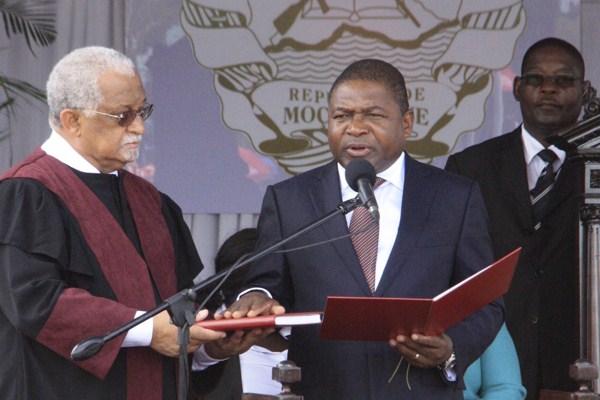Earlier this month, fears of Mozambique sliding back into civil war receded after Afonso Dhlakama—the leader of the rebel group turned political party, the Mozambican National Resistance, known as Renamo—toned down his bellicose rhetoric over last year’s contested election. Dhlakama had disputed the October 2014 results, claiming electoral fraud, and Renamo refused to take up its seats in Parliament, demanding a share of power in the provinces where it won majorities over the longtime ruling Frelimo party. Dhlakama threatened to seize control of the provinces by force.
To end the boycott, newly elected President Filipe Nyusi, a member of Frelimo, met with Dhlakama in February and encouraged him to submit his proposal for provincial autonomy to Parliament, promising that the Frelimo-dominated legislature would give it serious consideration. Instead the bill got a fairly peremptory dismissal three weeks ago in a party-line vote, on grounds that the proposal was unconstitutional. Dhlakama alleged that Nyusi had reneged on their agreement.
While Dhlakama’s demands for political inclusion have a familiar ring, they appear to be resonating more widely now than before. The provincial autonomy bill has sparked wide-ranging discussions in Mozambique’s media and within civil society—if not in Parliament—about its pros and cons. At the same time, long-running negotiations between Renamo and the government on other aspects of political inclusion, notably in the armed forces, have ground to a halt, with mediators asserting that neither party seems to want to see the key issues resolved and that only the two party leaders can work out a deal. Nyusi has promised he will meet with Dhlakama again, but only if they have something specific to discuss.

